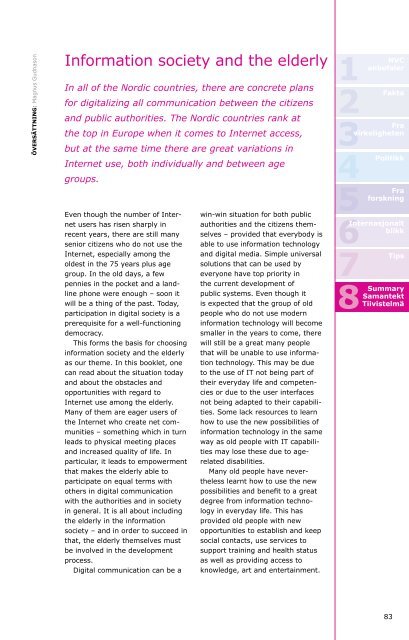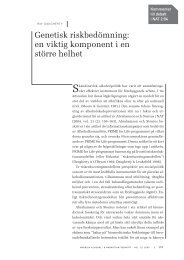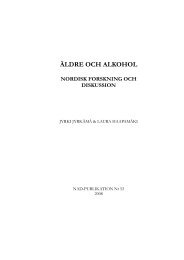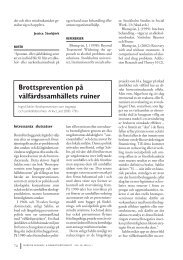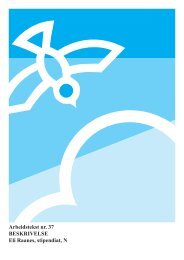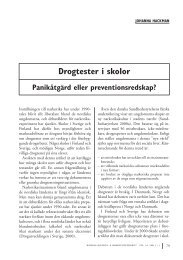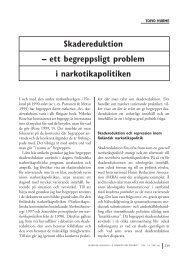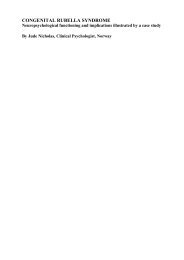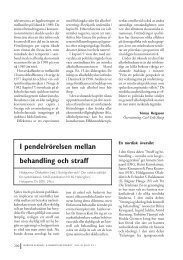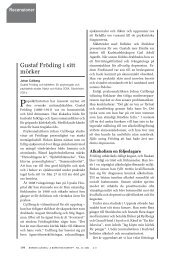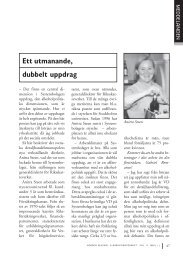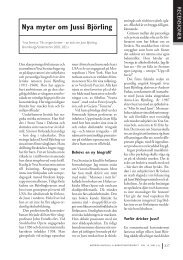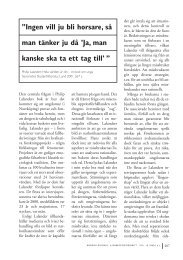Create successful ePaper yourself
Turn your PDF publications into a flip-book with our unique Google optimized e-Paper software.
ÖVERSÄTTNING: Magnus Gudnason<br />
Information society and the elderly<br />
In all of the Nordic countries, there are concrete plans<br />
for digitalizing all communication between the citizens<br />
and public authorities. The Nordic countries rank at<br />
the top in Europe when it comes to Internet access,<br />
but at the same time there are great variations in<br />
Internet use, both individually and between age<br />
groups.<br />
Even though the number of Internet<br />
users has risen sharply in<br />
recent years, there are still many<br />
senior citizens who do not use the<br />
Internet, especially among the<br />
oldest in the 75 years plus age<br />
group. In the old days, a few<br />
pennies in the pocket and a landline<br />
phone were enough – soon it<br />
will be a thing of the past. Today,<br />
participation in digital society is a<br />
prerequisite for a well-functioning<br />
democracy.<br />
This forms the basis for choosing<br />
information society and the elderly<br />
as our theme. In this booklet, one<br />
can read about the situation today<br />
and about the obstacles and<br />
opportunities with regard to<br />
Internet use among the elderly.<br />
Many of them are eager users of<br />
the Internet who create net communities<br />
– something which in turn<br />
leads to physical meeting places<br />
and increased quality of life. In<br />
particular, it leads to empowerment<br />
that makes the elderly able to<br />
participate on equal terms with<br />
others in digital communication<br />
with the authorities and in society<br />
in general. It is all about including<br />
the elderly in the information<br />
society – and in order to succeed in<br />
that, the elderly themselves must<br />
be involved in the development<br />
process.<br />
Digital communication can be a<br />
win-win situation for both public<br />
authorities and the citizens themselves<br />
– provided that everybody is<br />
able to use information technology<br />
and digital media. Simple universal<br />
solutions that can be used by<br />
everyone have top priority in<br />
the current development of<br />
public systems. Even though it<br />
is expec ted that the group of old<br />
people who do not use modern<br />
information technology will become<br />
smaller in the years to come, there<br />
will still be a great many people<br />
that will be unable to use information<br />
technology. This may be due<br />
to the use of IT not being part of<br />
their everyday life and competencies<br />
or due to the user interfaces<br />
not being adapted to their capabilities.<br />
Some lack resources to learn<br />
how to use the new possibilities of<br />
information technology in the same<br />
way as old people with IT capabilities<br />
may lose these due to agerelated<br />
disabilities.<br />
Many old people have nevertheless<br />
learnt how to use the new<br />
possibilities and benefit to a great<br />
degree from information technology<br />
in everyday life. This has<br />
provided old people with new<br />
opportunities to establish and keep<br />
social contacts, use services to<br />
support training and health status<br />
as well as providing access to<br />
knowledge, art and entertainment.<br />
1<br />
NVC<br />
anbefaler<br />
2<br />
Fakta<br />
3<br />
Fra<br />
virkeligheten<br />
4<br />
Politikk<br />
5<br />
Fra<br />
forskning<br />
6Internasjonalt<br />
blikk<br />
7<br />
8<br />
Summary<br />
Samantekt<br />
Tiivistelmä<br />
83<br />
Tips


